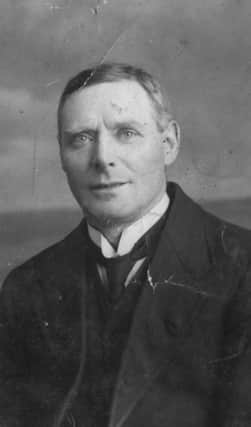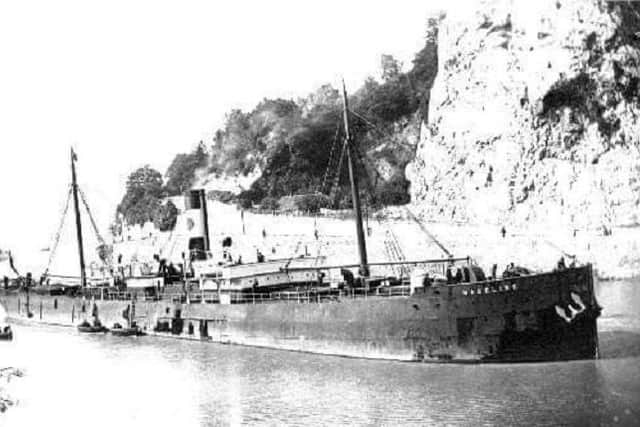Stricken sailor scalded and not expected to live


But then when you hear how, after being captured by the Nazis, he shared accommodation with Jewish prisoners destined for the death camps and then survived the hardships of a German POW camp, you could argue that he was really rather fortunate to have lived beyond such times.
Today, John’s grandson, Alan Clark, tells the amazing story of this unsung hero with the help of the hand-written notes made by his grandfather during his time at sea, serving king and country, and on land, serving time in the very heartland of the enemy.
Advertisement
Hide AdAdvertisement
Hide Ad

John Ferguson Aikenhead was born in South Shields in 1879 and at one time lived in Commercial Road.
He served his time at Smiths Dock, in North Shields; working there as a fitter and turner between 1885 and 1900. That same year, he joined the Merchant Navy, serving as a third engineer aboard the SS Cairnmona and SS Cairnstrath among others.
Alan said between 1912 and 1913, his grandfather worked in Glasgow on the Queen Mary battleship, before travelling to York to serve aboard the SS Harry Wadsworth.
His next job took him home to Tyne Dock where he joined the Carmelite before heading overseas to Vera Cruz in July 1914 to serve on board the Mexican.
Advertisement
Hide AdAdvertisement
Hide AdIt was during his next posting, on October 15, 1914, serving as a third engineer on the Madeline, that he almost lost his life.
For on March 8, 1918, in the Bristol Channel, the Madeline was torpedoed and sunk, with the loss of eight lives.
Alan said: “He was badly scalded and put in a lifeboat which he rowed to St Ives. When he got there, they had to cut his hands off the oars because they were so badly burned that they had become stuck to the oars.”
Once there, he was examined by a doctor who initially thought he had “little chance” of surviving his injuries.
Advertisement
Hide AdAdvertisement
Hide AdThis is what Dr John Rice said at the time: “Third Engineer J F Aikenhead ex-S/S Madeline was landed at St Ives on March 8, 1918 after being torpedoed in the Bristol Channel.
“He was very severely scalded. Both his arms, front of his chest, face, head and neck were all involved, and at first there seemed to be very little chance of recovery.
“The burns would be technically classed as second degree, naturally there was great pain for some weeks and very extensive dressings had to be done which also caused considerable suffering.
“When he left here, no deformities were apparent, but they may have developed in time and may, if present, caused some limitations of movement to his limbs, which would be permanent in effect.
Advertisement
Hide AdAdvertisement
Hide Ad“But his nervous system is sure to have been affected by the shock, and in periods of crisis in the future I am certain he will feel the effects of the same.
“I attended Mr A from March 8, 1918, to April 7, 1918, when he seemed convalescent to travel home.
“His recovery is really a marvellous one and I have never known anyone so much burnt to recover.”
John J Rice M.D.
Yet despite such horrific injuries, just three years later, he was back at work, serving on the Merchant man the Glenealy.
Advertisement
Hide AdAdvertisement
Hide AdTomorrow’s we continue John’s amazing journey; hearing how the kindness of a German naval officer inadvertently led to his incarceration in Germany – and how he and his fellow POWs were housed alongside concentration camp-bound Jewish men.